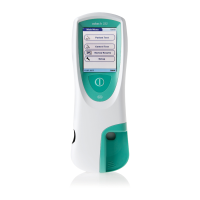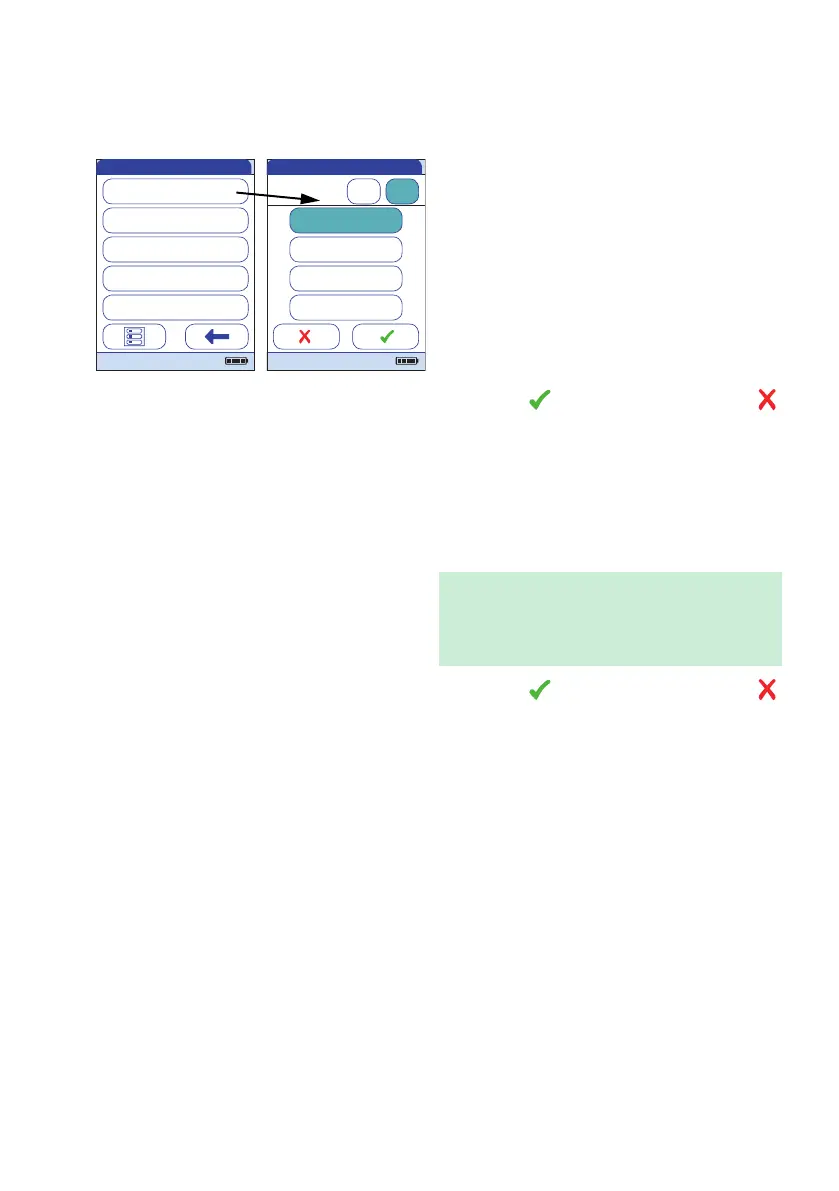Meter Setup
103
See page 101 on how to access the Setup-QC Settings menu.
1 Touch QC Lockout to set regularly recur-
ring quality control tests for available test
parameters.
2 New Lot: Touch Yes if you want to force a
control test every time a new test strip lot
is used. Otherwise touch No.
3 Time intervals: Touch the button to select
the time interval of choice (e.g., Daily).
Your selection is now highlighted.
4 Touch to save this setting, or touch
to exit this menu without saving any
changes.
5 Quality control tests may include one or
two levels. Select the number of levels
which must be performed (not applicable,
if you selected No).
If you select two levels, two different control
levels are required for every parameter. It is not
possible to unlock a QC lockout by performing
multiple tests with the same control level.
6 Touch to save this setting, or touch
to exit this menu without saving any
changes. The display automatically returns
to the previous screen.
QC Lockout
IQC Lockout
QC Result Format
Custom Range Trop. T
Reset Test Param.
Setup - QC Settings
04/19/2016
Setup - Lockout
New Lot:
Yes No
Daily
Weekly
Monthly
No
04/19/2016

